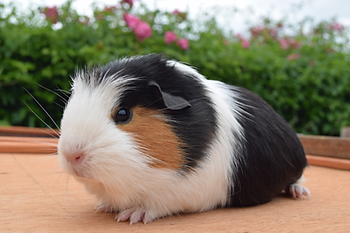It's been quite a while now since DEFRA announced that all poultry and game birds would need to be kept under cover, or indoors, from 29th November 2021. However, we are noticing that more and more people are releasing their birds and not following restrictions. We would like to remind everyone how important it is to follow the rules and legal guidance by keeping your birds under cover.
At the moment, there is still not certain date set for when restrictions will ease. All cases of Avian Influenza (bird flu) are still being monitored and prevention zones are still in force in several areas of the UK. As hard as it is to keep birds inside, it is so crucial at this time. The rules apply for ALL poultry-keepers, whether your birds are commercial or pets.
What are the rules of the Bird-Flu Flockdown?
To halt the spread of the disease, the government implemented a compulsory housing order requiring all poultry keepers to implement strict biosecurity measures and to keep their birds undercover and away from wild birds. The housing order is a legal requirement.
Advice on how to keep your hens safe can also be found on the APHA and DEFRA website, but here is also a summary of the requirements to keep your hens safe outside:
Keep all poultry and captive birds under cover (can be done with fine netting) to protect them from the risk of wild bird faeces getting into the run/coop.
Clean and disinfect all clothing, footwear, equipment and vehicles before/after contact with your birds - use disposable protective clothing where practical.
Reduce the movement of people, vehicles or equipment to/from areas where your birds are kept, minimise contamination from manure and use effective vermin control.
Use fresh disinfectant at the right concentration before entering enclosures.
Minimise direct and indirect contact between your birds and wild birds, making sure all feed and water are not accessible to wild birds.
What are the symptoms of Bird Flu? What should I look out for?
The main symptoms of Avian Influenza are:
Depression or seeming nervous
Loss of appetite
Decrease of egg-laying (or stopping altogether)
Swelling and blue discolouration of combs and wattles due to disturbance of blood circulation
Coughing or sneezing
Diarrhoea.
However, sudden death can occur without any symptoms.
If your birds have any of these symptoms, you should contact your nearest hen-friendly vet and also report to DEFRA. Sadly, if confirmed, the infected birds are humanly culled - this is the case whether commercial or domestic.
If you notice another bird-keeper not complying with the housing order rules, we would strongly advise approaching them to ensure they are aware of the situation or, if needed, contact your local council.
For the latest updates on Avian Influenza, visit the Government website here




Comments